From Seed to Bloom: Your Guide for Growing Sweet Peas from Seed
Have you dreamed of having a garden full of fragrant sweet pea flowers? I’ll share my tips on sowing sweet pea seeds indoors, transplanting the young plants into the garden, and caring for these beautiful blooms throughout their growing season.
I have grown sweet peas in my cut flower garden for years and love them more every season. This post covers how to grow sweet peas from seed indoors.
But if you plan on buying sweet pea starts at the nursery or local garden center, you’ll still get a lot out of this post. I’ll also share how to transplant the seedlings into the garden and grow healthy and thriving flowers.
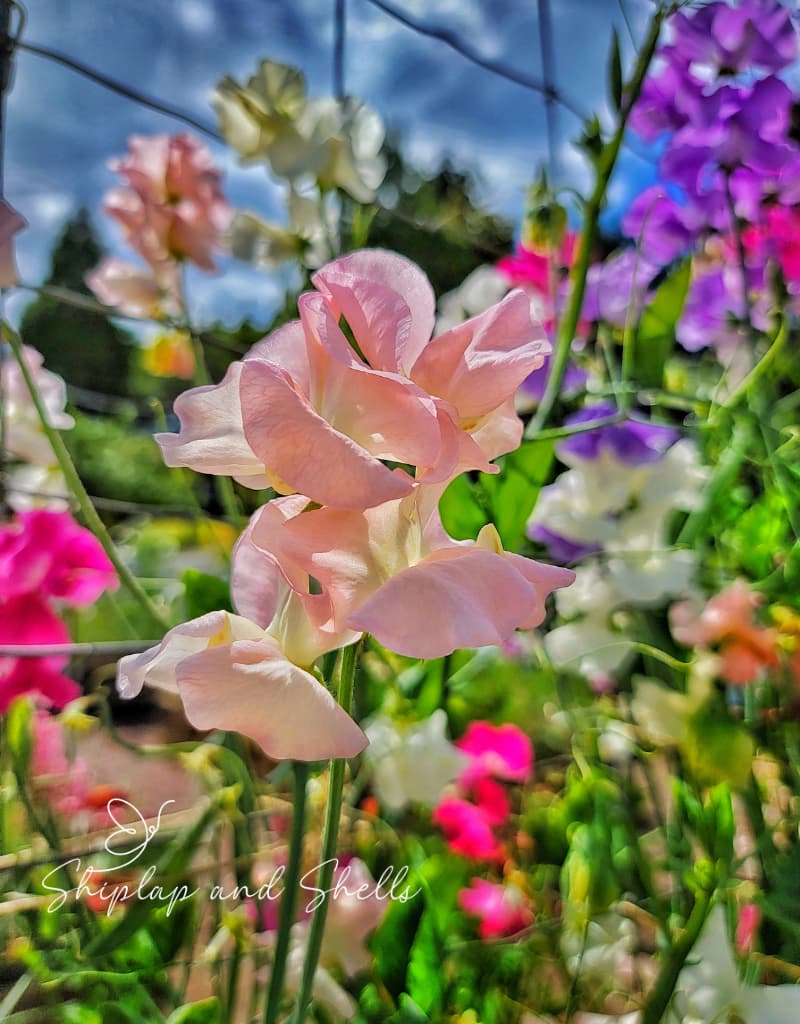
As an Amazon affiliate, I earn from qualifying purchases at no extra cost to you. My blog contains other affiliate links for your convenience as well. Click here to read my privacy policy.
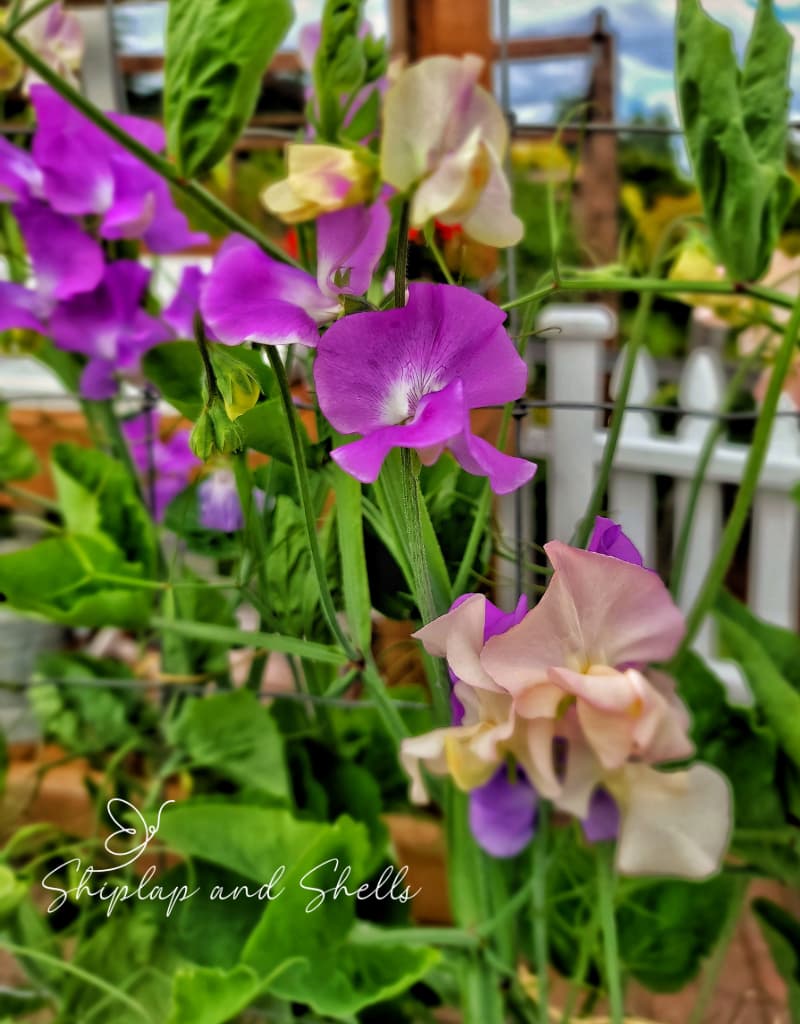
Sweet Pea Basics
Sweet peas (Lathyrus odoratus) generally bloom from late spring through early summer. They thrive in USDA hardiness zones 5-9, so if you live outside of these areas, it may not be possible for you to cultivate them successfully.
With the right conditions, you’ll enjoy beautiful blooms all season long. Sweet peas require at least 6 hours of morning sun and well-draining soil.
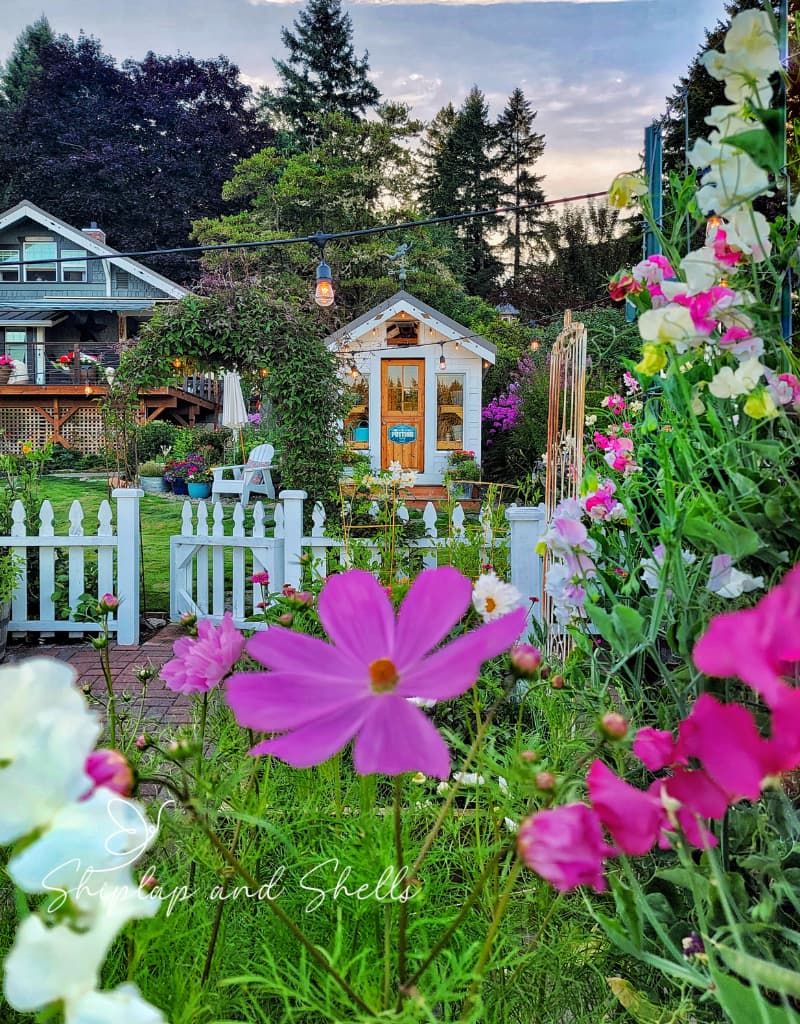
Why You Should Grow Sweet Peas From Seed
Fragrant sweet peas are easy to grow from seed and need minimal care. They grow best in cool climates with light shade and plenty of water.
These old-fashioned flowers are perfect for beginning gardeners. If planted at the right time, they grow quickly and reach full maturity within two months.
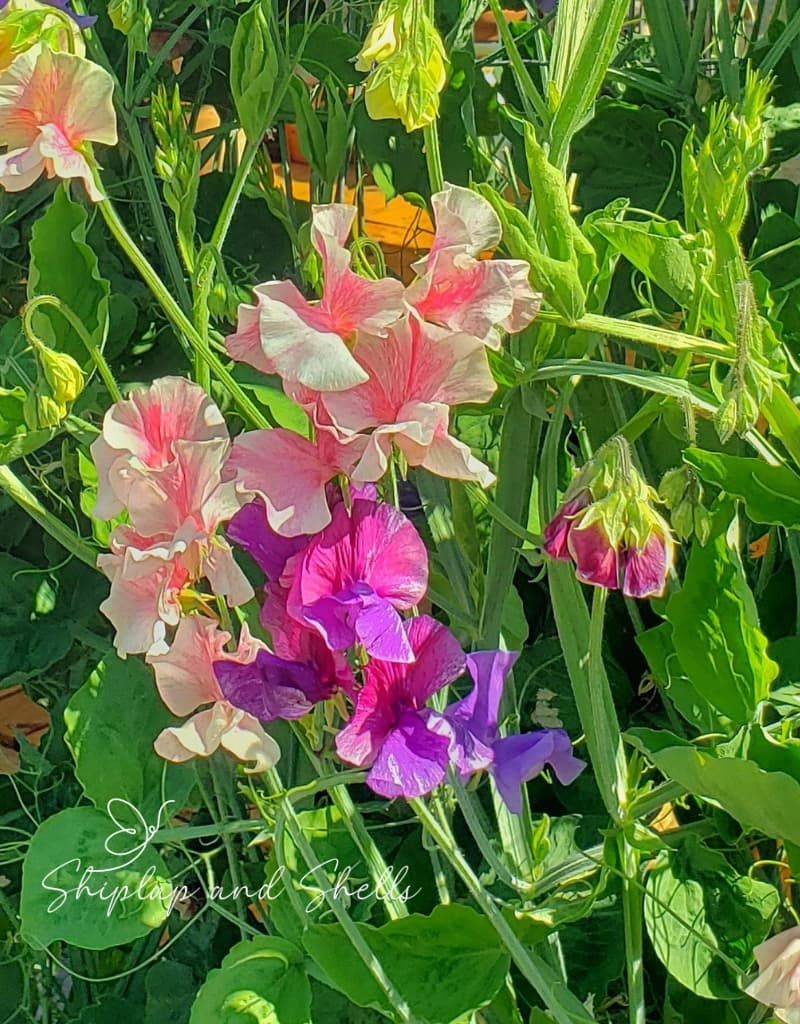
Sweet Peas Offer Vibrant Colors and Abundant Varieties
With their bright colors and sweet scent, sweet peas make a great addition to any flower arrangement.
Growing sweet peas from seed offers various colors and mixes. The biggest challenge is deciding which sweet pea plants to grow in your garden yearly.
Since starting my cut flower garden several years ago, I have planted 23 varieties and have loved every single one.
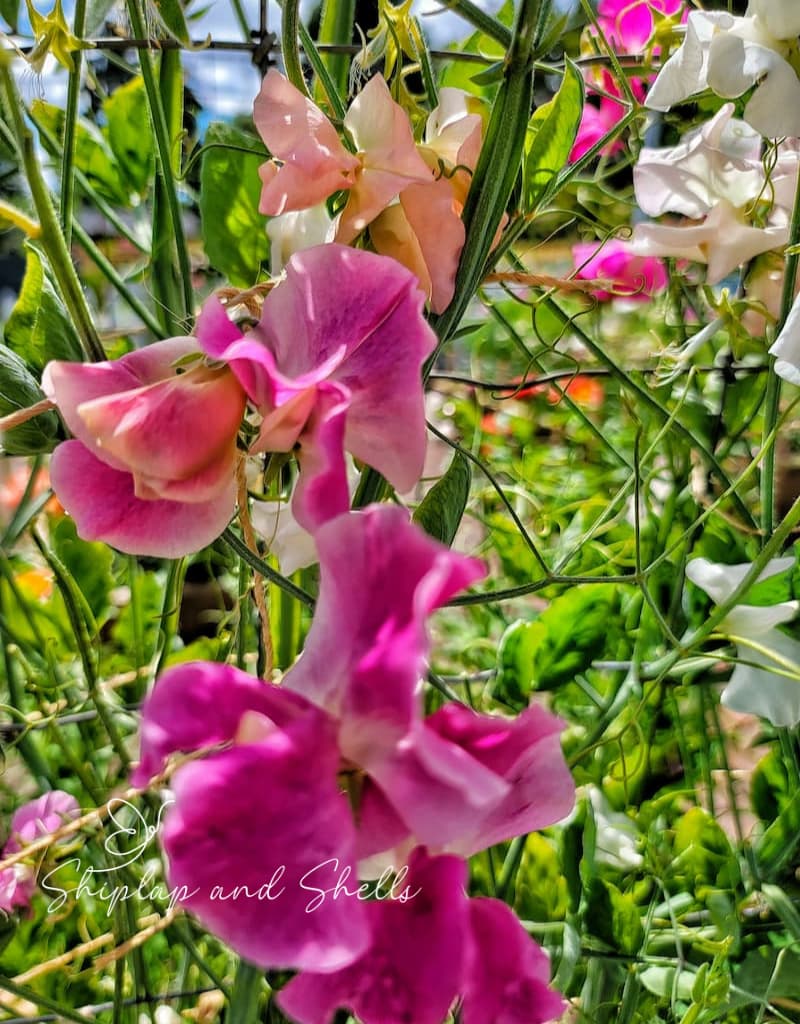
The Sweet Smell of Every Sweet Pea Bloom
Annual sweet peas have the most amazing, sweet fragrance. This is one of those times when I wish there were such a thing as a “scratch and sniff” blog post where you could take in the incredible fragrance of these beautiful blooms.
The open-pollinated heirloom varieties are best known for their sweet fragrance.
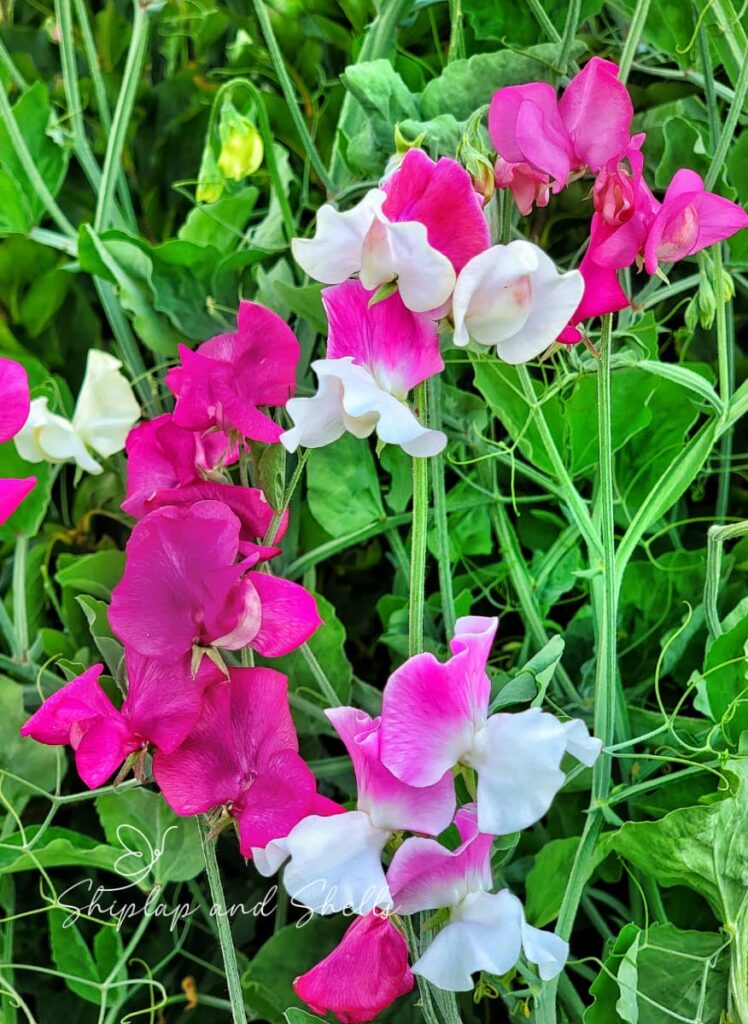
Sweet Peas are The Perfect Cutting Flower
With their stunning colors and straight long stems, sweet peas are the perfect cut flower for any late spring or early summer bouquet.
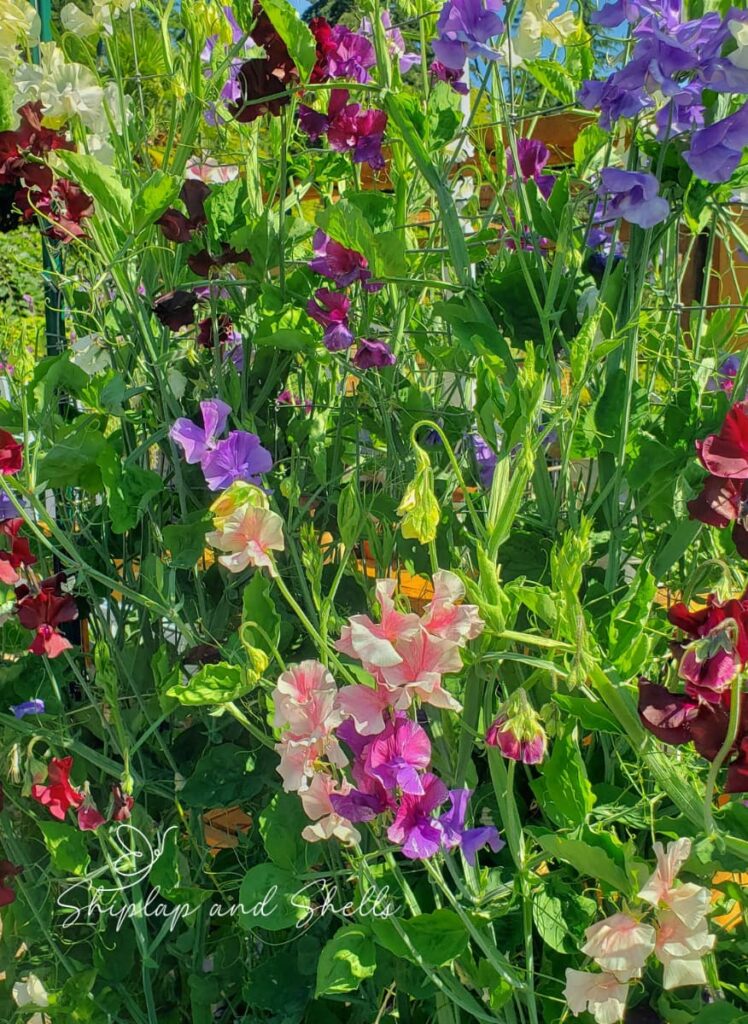
Deer Resistant and Pollinator Friendly Blooms
Sweet peas are deer-resistant, but pollinators like butterflies and bees love them. This makes this plant the best of both worlds.
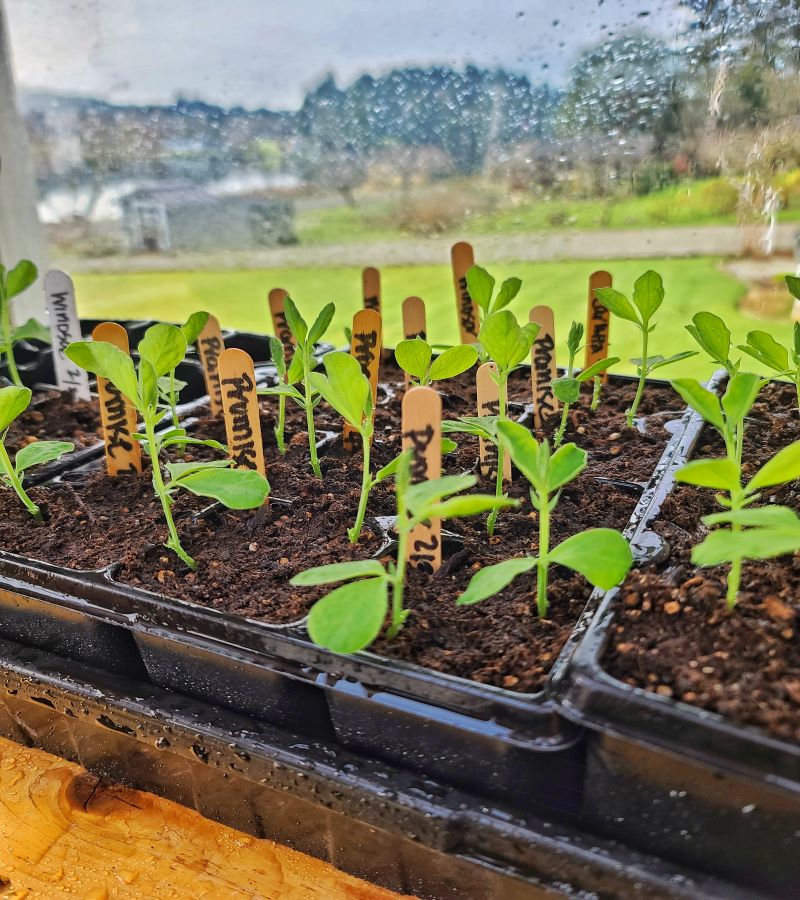
When to Start Growing Sweet Peas from Seed
Sweet peas can be sown in the fall in warmer regions with milder winter weather (zone 7 and above). For everyone else, you’ll sow your sweet pea seeds in late winter or early spring.
These plants like cool temperatures and can be sown indoors 10-12 weeks before the last frost date of the season. This information is also on the seed packets for your convenience.
Sweet peas can also be sown directly in the ground as soon as the soil can be worked in the spring. The optimum soil temperature for sowing sweet pea seeds is 55-65°F. Watch for birds, snails, slugs, and other pests. They love sweet peas!
Note: Sweet pea seeds are poisonous if ingested. Use caution around children and pets.
Seed Starting Supplies
Check out my favorite supplies and tools for starting seeds indoors. Whether you’re looking for grow lights or a seed starting mix, you’ll find what I use in my own greenhouse.
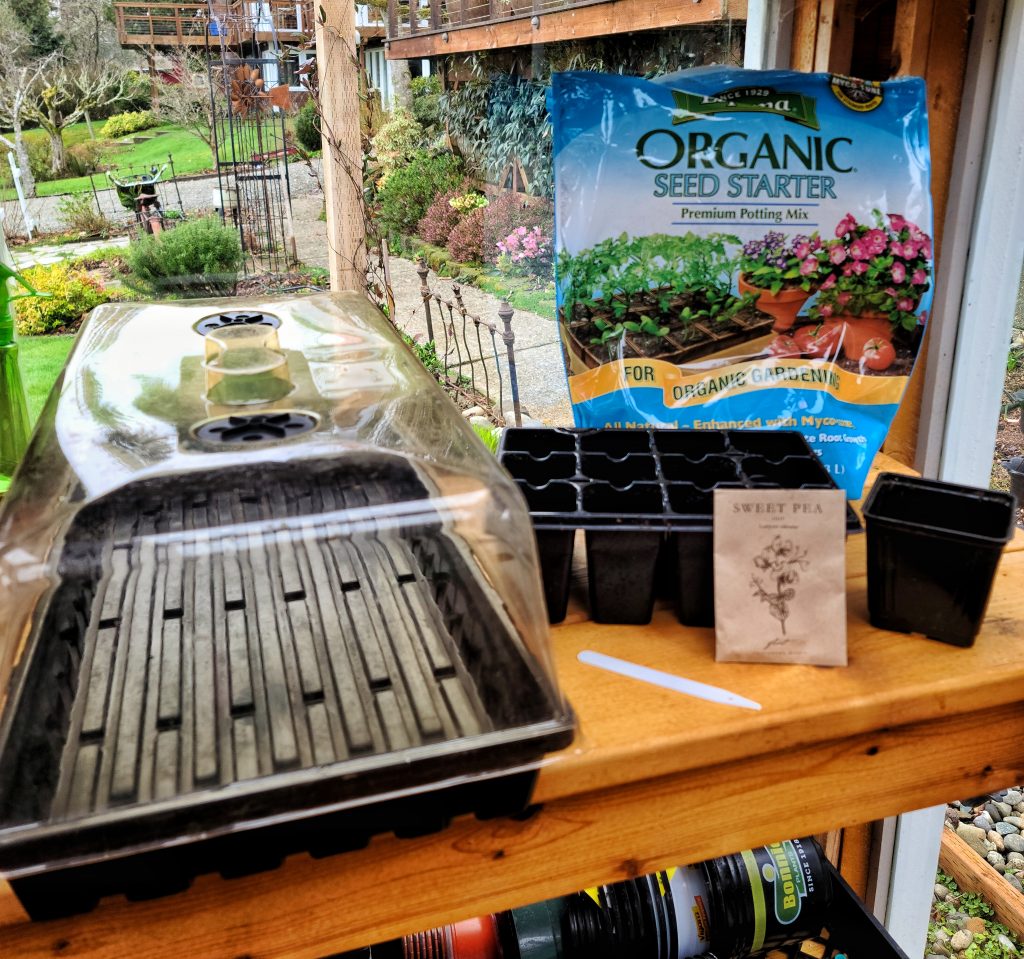
Supplies for Growing Sweet Peas from Seed
Garden Supplies and Tools
Check out my favorite garden supplies and tools for the growing season. Whether you’re looking for potting soil or deer repellent, you’ll find what I use in my own garden.
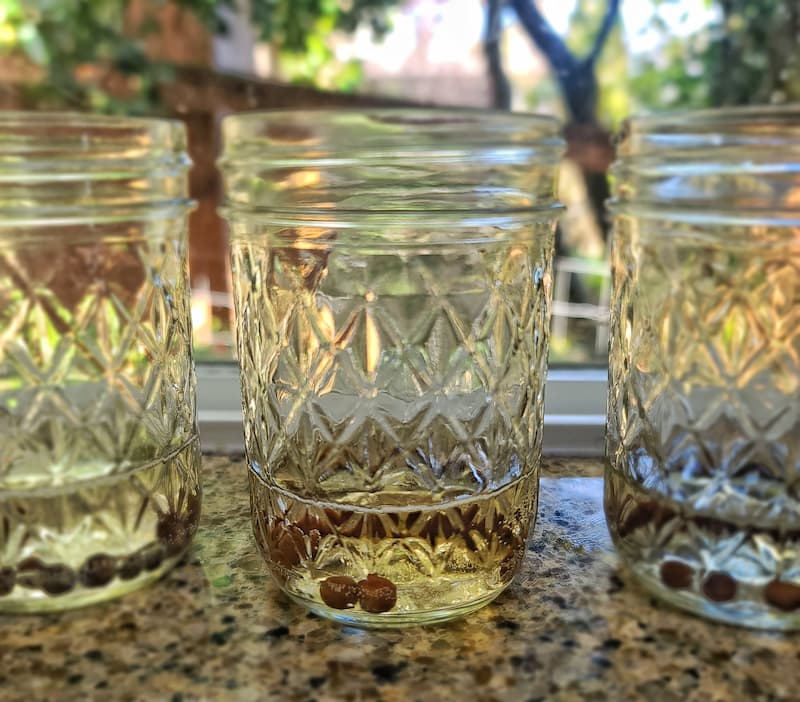
Steps for Sowing Sweet Pea Seeds
Step 1 – Soak Seeds in Water
To speed up the sprouting process by a few days, soak the seeds in water for up to 24 hours before sowing to soften the hard seed coat.
This process can be done for indoor and spring sowing. You can skip this process when fall sowing.
Step 2 – Choose a Container
Sweet peas produce abundant roots, so it’s essential to use a deep container when sowing seeds. I usually use 4-inch pots, but you can also use root trainers.
The more room you provide for their strong root systems at the beginning stages of the seed-starting process, the better the plant will grow in the long run.
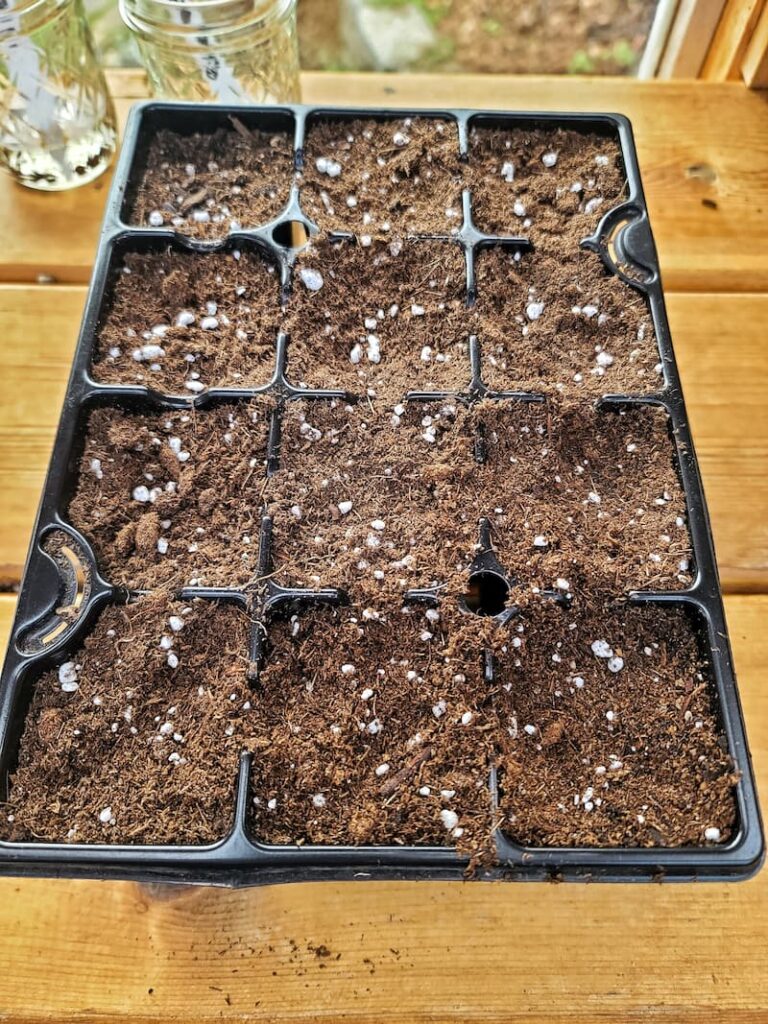
Step 3 – Fill Containers with Soil
I recommend using a good quality seed starting potting soil when sowing your sweet pea seeds. Good soil will make all the difference in the world.
Fill your containers with moist soil. You always want to use well-drained soil that is never saturated.
Benefits of Using a Seed Starting Mix for Sweet Peas
You can make the mix go even further by filling the bottom half of the container with regular potting soil and then filling the rest with the seed starting mix, where the seeds will be placed.
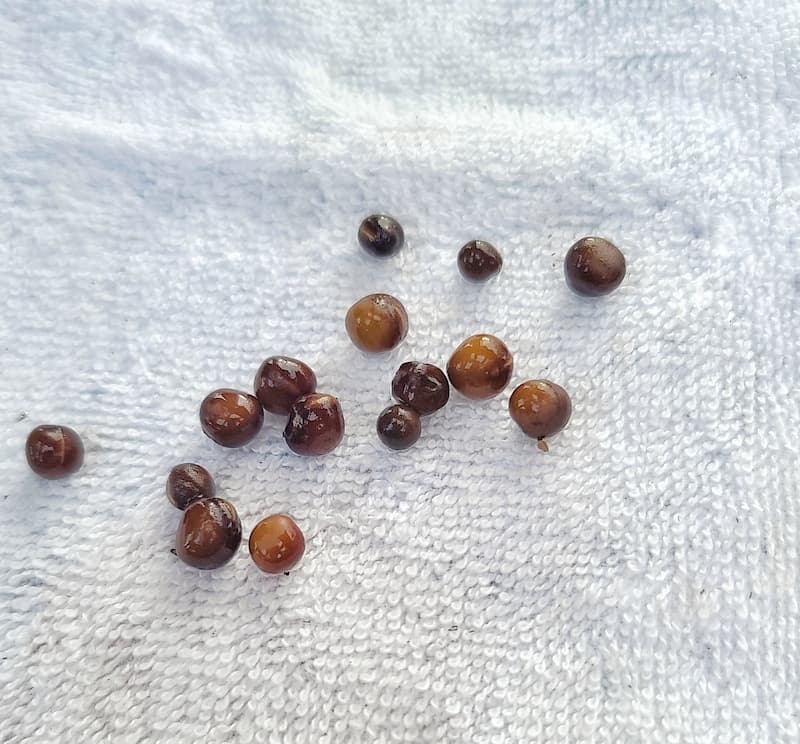
Step 4 – Sowing the Seeds
Sow two seeds per container or cell by creating a one-half-inch hole into the soil in two opposite corners. You can use a pencil, dibbler, or even your finger to make the hole.
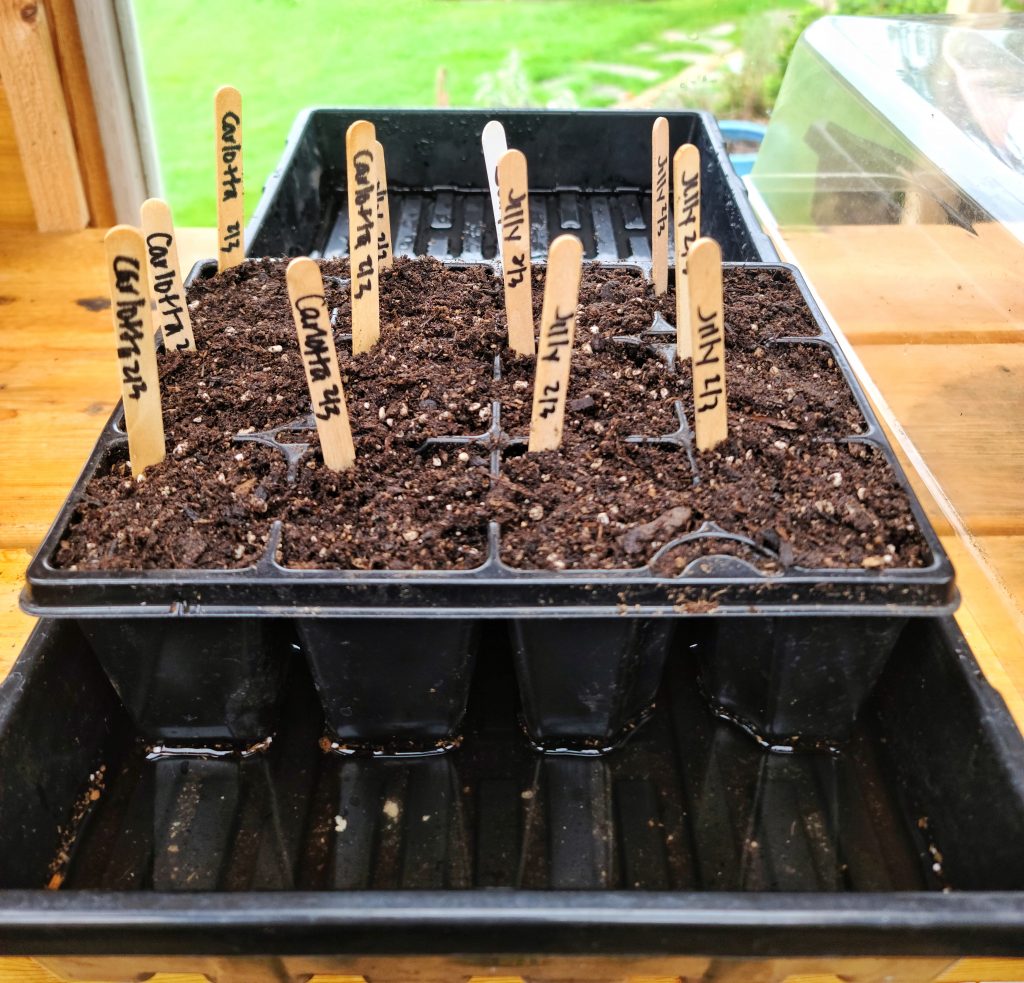
Step 5 – Bottom Water
Bottom watering is the gentlest and easiest way to water sweet pea seeds. Fill the drainage tray with about an inch of water and let the container sit in the tray to moisten the soil evenly.
DO NOT leave the container in a tray full of water for over an hour.
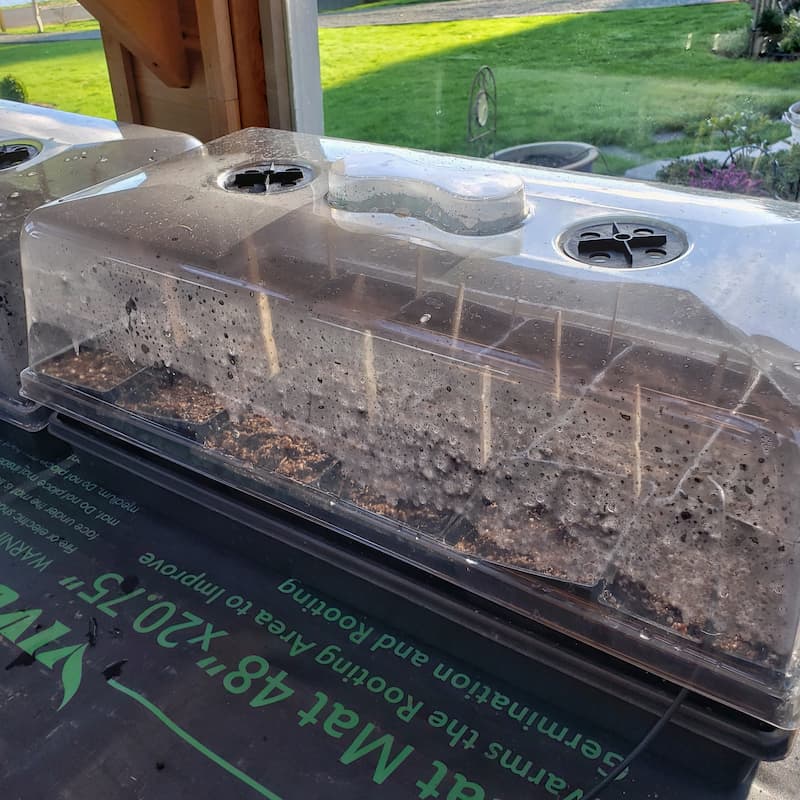
Step 6 – Cover With a Humidity Dome Lid
Covering your container with a plastic dome lid will increase humidity and speed up germination.
Place the container in a cool greenhouse or a bright window in the house.
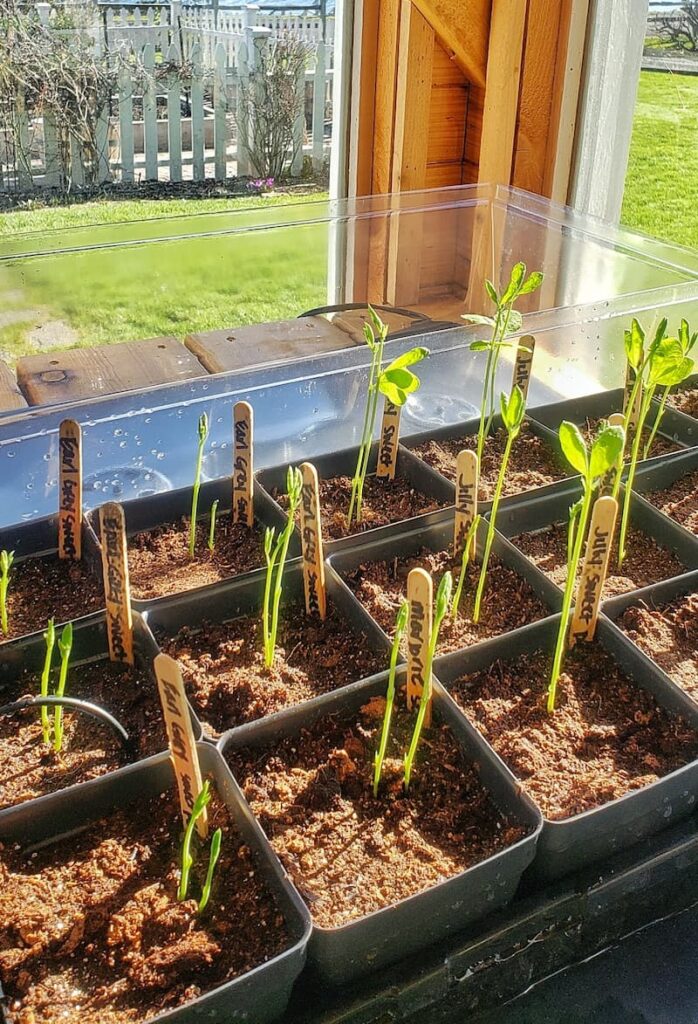
Once the Sweet Peas Have Germinated
Uncover the Container
Take the humidity dome lid off the container once the seeds germinate.
Provide Good Air Circulation
You will need to ensure your seedlings get good air circulation. Running a fan in your indoor growing space will hugely benefit them.
Fertilize
When planting sweet pea seedlings indoors, it is important to provide the plants with adequate nutrients to promote healthy growth.
According to the instructions on the fertilizer package, an all-purpose liquid fertilizer should be applied to the soil every few weeks.
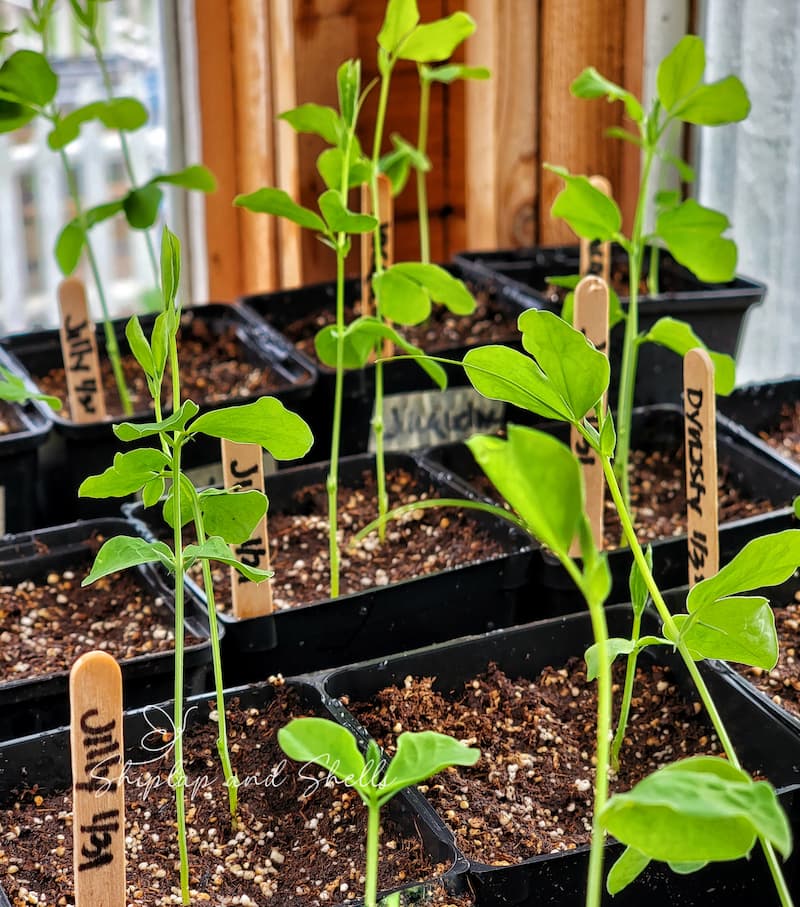
Pinching Your Sweet Peas
Sweet pea pinching is essential in getting the most out of your plants.
Pinching is when you remove the central growing tip on each stem above the leaf joints. This encourages branching from the base of the plants to promote a bushier look and produce more blooms on each stem.
It can also help prevent the plant from becoming “leggy.”
Once the sweet pea plant is 4-6 inches tall and has at least three sets of leaves on each stalk, start pinching it back to encourage side shoots.
Continue this process even when they’re planted in the garden bed throughout the growing season.
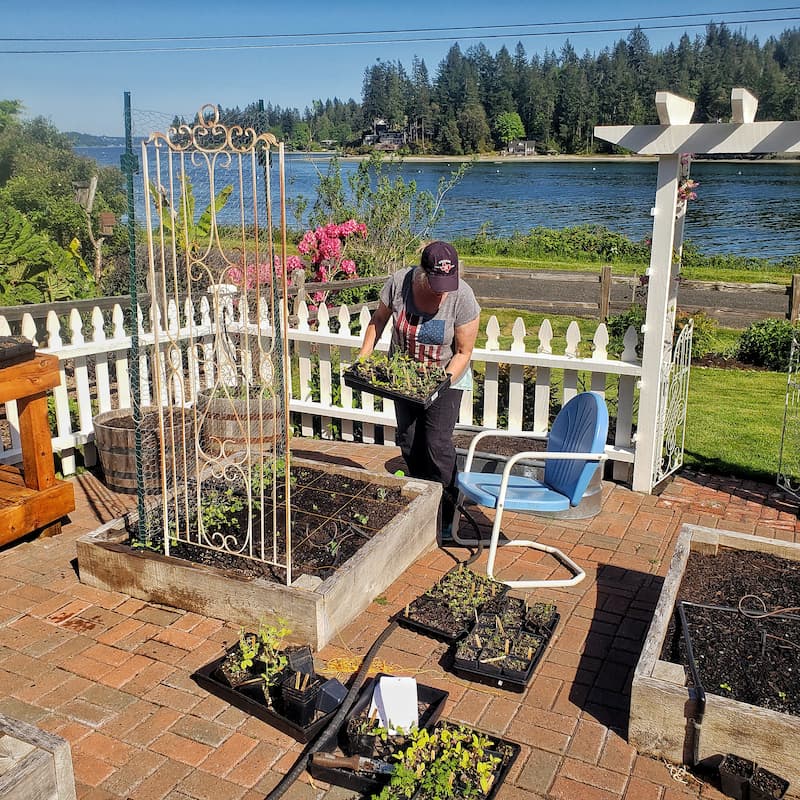
Preparing Garden Beds for Sweet Peas
Prepare Garden Beds in Full Sunlight
When planning the location of your garden beds, remember that sweet peas love the full sun in the northern half of the US and afternoon shade in the southern states for protection from the summer heat.
These flowering plants require full sunlight to grow and bloom, so they should be planted in an area with at least six hours of direct sun daily.

Provide Nutrients
Sweet peas are heavy feeders and need extra nutrients.
When preparing the garden beds for transplanting, add a layer of organic matter such as compost or bone meal and natural fertilizer. Mix these ingredients deep into the soil.
Make sure the garden soil has good drainage.
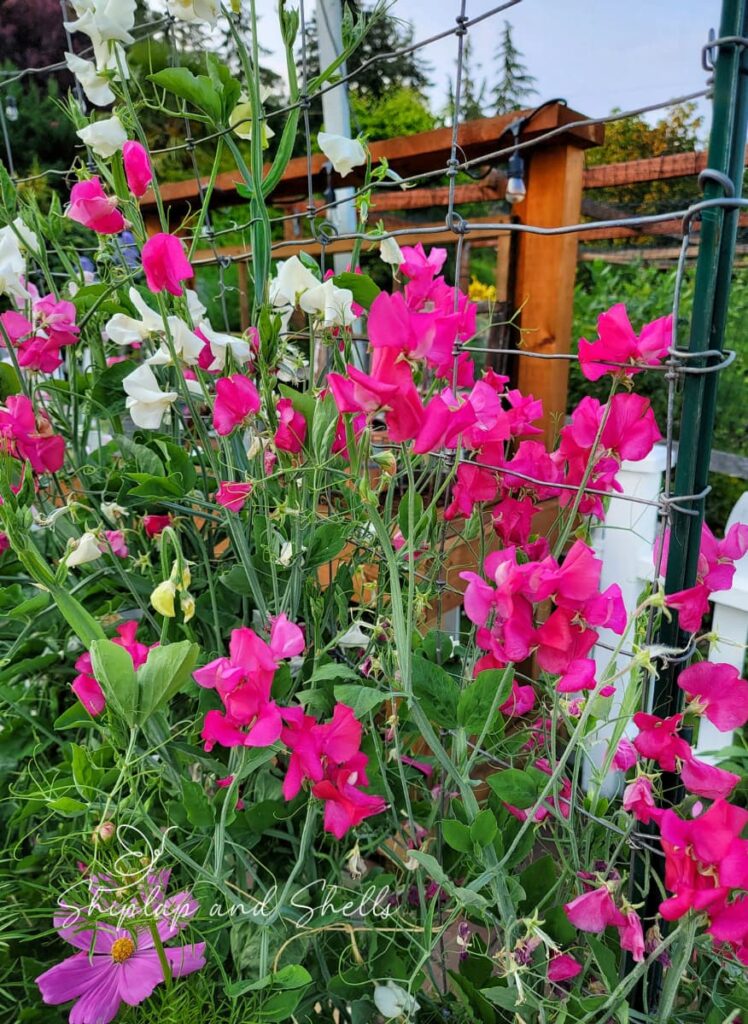
Grow On a Structure for Sweet Peas to Climb
Sweet pea vines will grow quickly to at least six feet tall, so they’ll need strong vertical support to climb on. Left unsupported, they can become top-heavy and fall over, causing broken stems and damaged flowers.
Setting up a structure, like a trellis, before the sweet pea vines start growing will be easier and less likely to damage your plants.
Tall wooden or metal posts with metal fencing will allow the vines to climb. We use cattle fencing or chicken wire in our cut flower garden.
As the sweet peas grow up the trellis throughout the season, tie the vines to the structure. I use twine. During the prime growing season, they can grow more than a foot a week.
‘Growing a Cut Flower Garden’ Series
Learn about the ins and outs of growing a cut flower garden this year. Click the button below to be taken to the entire series of blog posts and choose what is interesting to you.
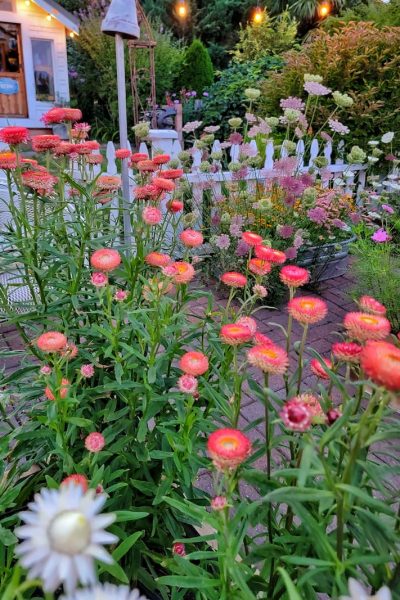
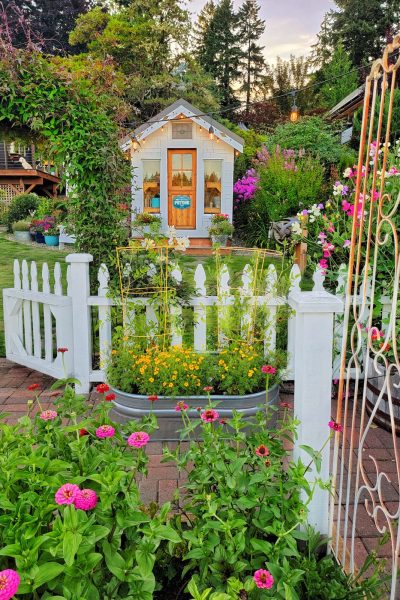
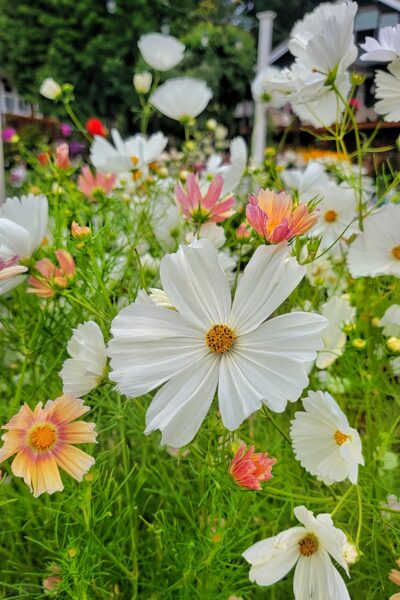
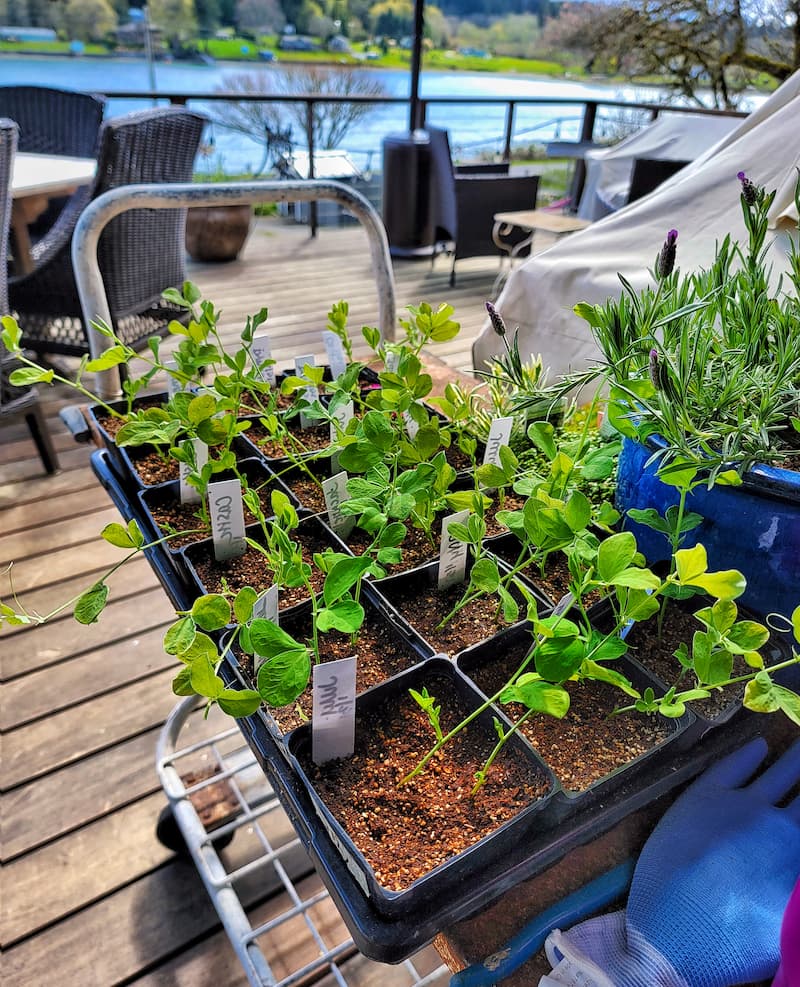
Hardening Off Your Sweet Peas
Before planting your sweet peas in the garden, ensure they have been hardened off by gradually exposing them to outdoor conditions for 7-10 days.
This will help reduce any shock from being transplanted and ensure they grow strong and healthy once planted in their final location.
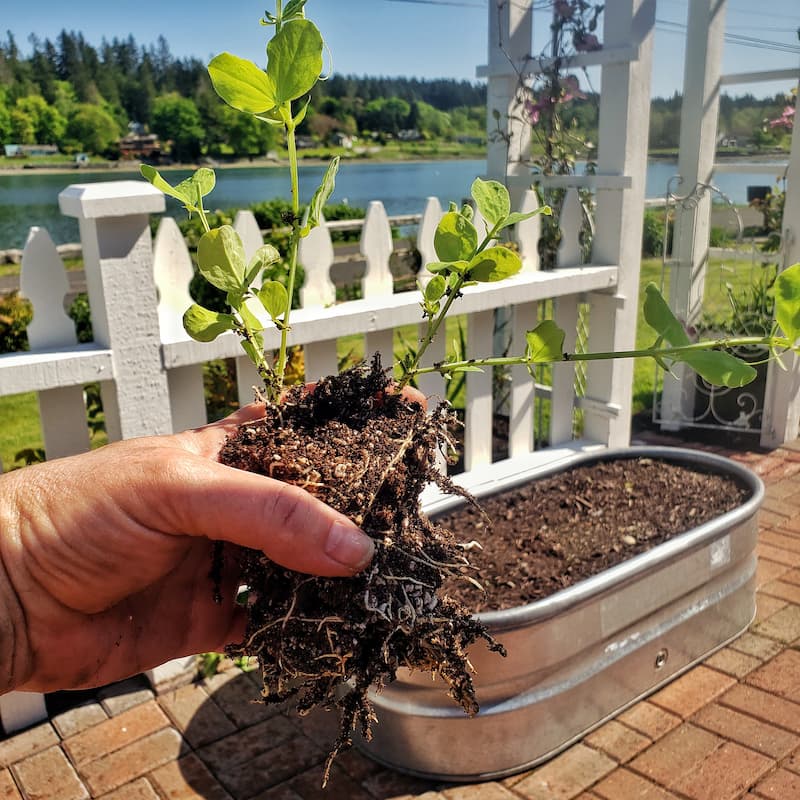
Transplanting Sweet Pea Seedlings to the Garden
Sweet pea seedlings can be translated to garden beds around the last spring frost. Be sure to plant in the early morning or late evening when temperatures are cooler, and there’s less chance of wilting due to heat.
Plant them down the row in two rows, one sweet pea plant on each side of the trellis, spacing roughly 8 inches apart.
Once your sweet peas bloom, provide them in the ideal environment to grow and thrive. Caring for sweet pea plants involves providing enough moisture, at least 6 hours of sun daily, and regular fertilizer applications.
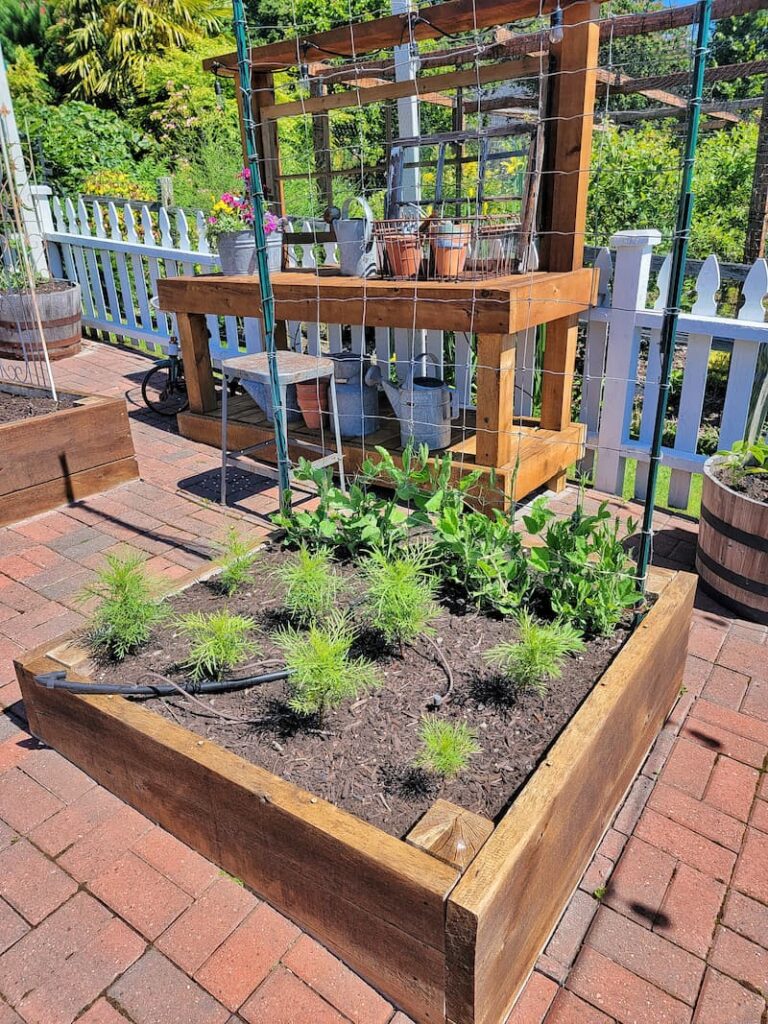
Caring for Your Sweet Peas
Watering
Sweet peas need a lot of water to thrive, especially during warm weather.
Keep the soil evenly moist but not waterlogged. Water deeply whenever the top inch of the soil feels dry. Avoid overhead watering to help prevent fungal diseases.
To provide enough moisture for your blooms, water deeply once a week during the growing season and mulch around the base of the plant to help retain moisture.
Feeding Plants
Fertilizers and seaweed emulsions are great for sweet peas.
They need plenty of nitrogen to produce abundant blooms, and fertilizers or seaweed emulsion can provide the necessary nutrients.
The fertilizers will give plants a quick boost while using seaweed emulsion over time can help create healthier soil that provides more sustained nutrition for your sweet pea plants.
Pest and Disease Control
Watch for common pests like aphids and slugs. If necessary, use natural and organic pest options. Look for signs of disease, such as powdery mildew or root rot.
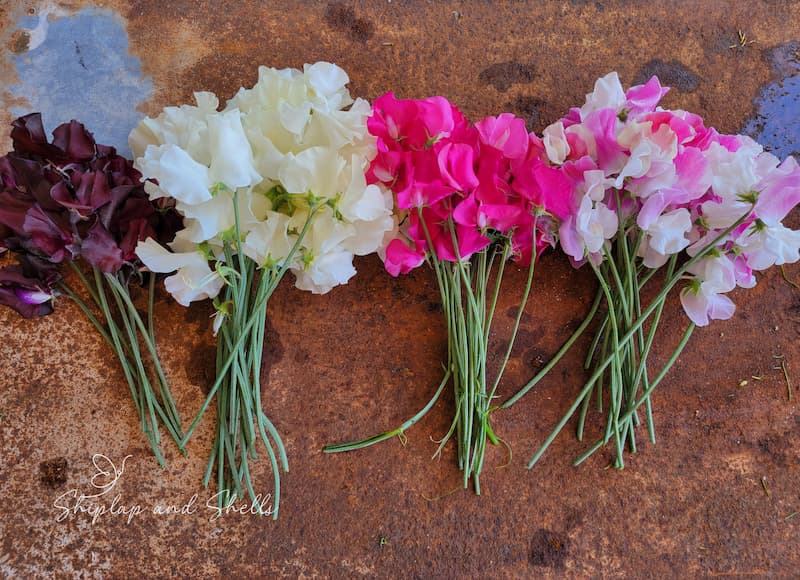
Deadhead and Harvest Regularly
To prolong blooming, harvest and deadhead flowers frequently to keep the plants from setting seed. Deadheading is trimming back the old flowers, encouraging new growth.
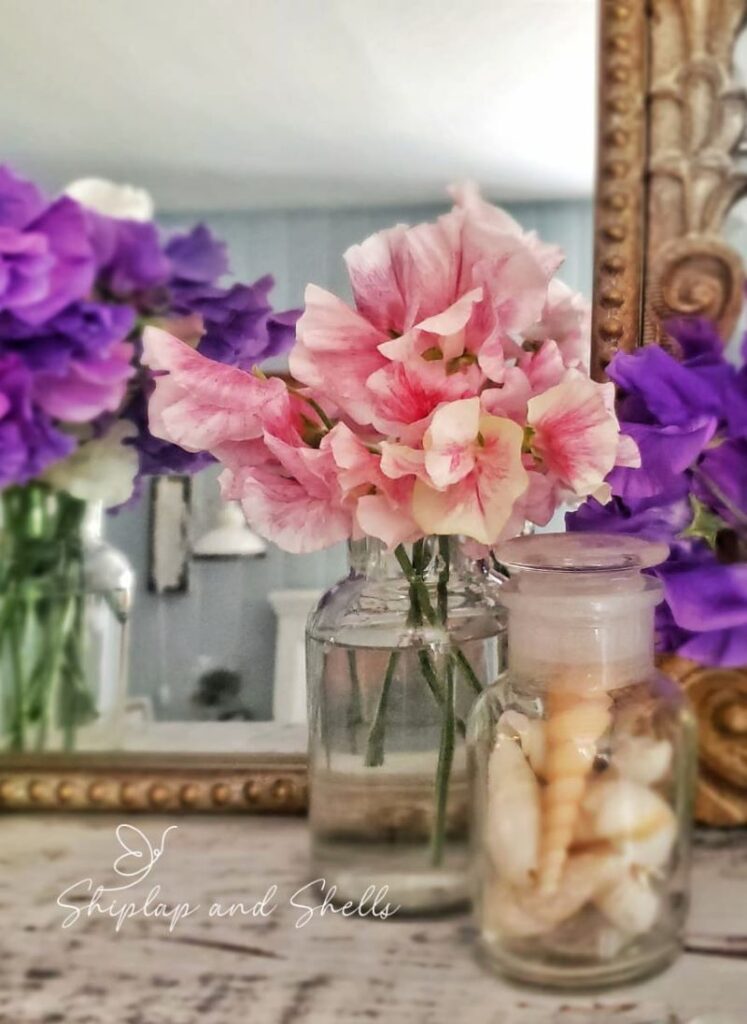
Harvesting Sweet Peas
Pick sweet peas for a longer vase life when at least two unopened flowers are at the tip of a stem. Sweet peas are short-lived cut flowers and usually last only 4-5 days in a vase.
Add a flower preservative to the water to extend the vase’s life.
Save Seeds for Next Year’s Garden
You can save the seeds in each sweet pea pod to grow next year.

Common Mistakes Made When Growing Sweet Peas
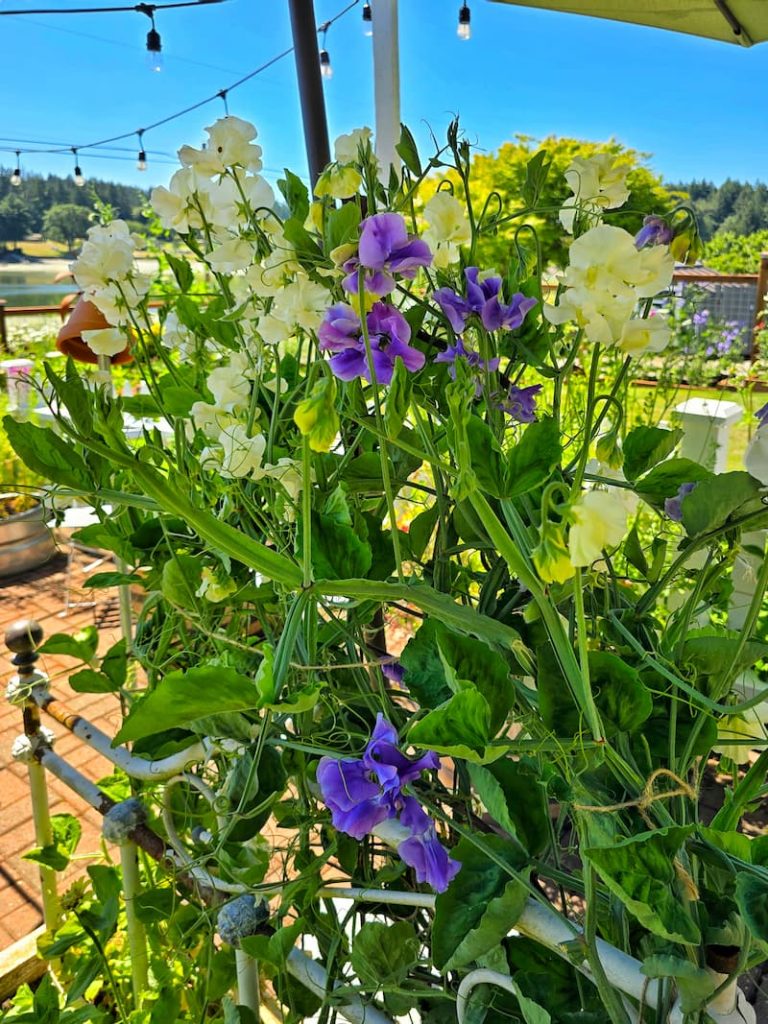
Common Questions About Growing Sweet Peas from Seed
How Long Do Sweet Peas Take from Seed?
Sweet peas typically take about 7 to 15 days to germinate from seed under the right conditions.
After germination, sweet peas can take 60 to 85 days to flower, depending on the variety and growing conditions.
Are Sweet Peas Hard to Grow from Seed?
Sweet peas are not hard to grow from seed but require specific care to ensure successful germination and growth.
Because sweet peas have a hard outer shell, soaking them in water for 24 hours before sowing can soften the shell and improve germination rates.
Sweet peas are climbers, so providing a trellis, netting, or another support structure right from the start is crucial for their growth.
These plants can be susceptible to pests like aphids and diseases such as powdery mildew. Keep your sweet peas healthy with regular inspections and prompt attention once you see a plant problem.
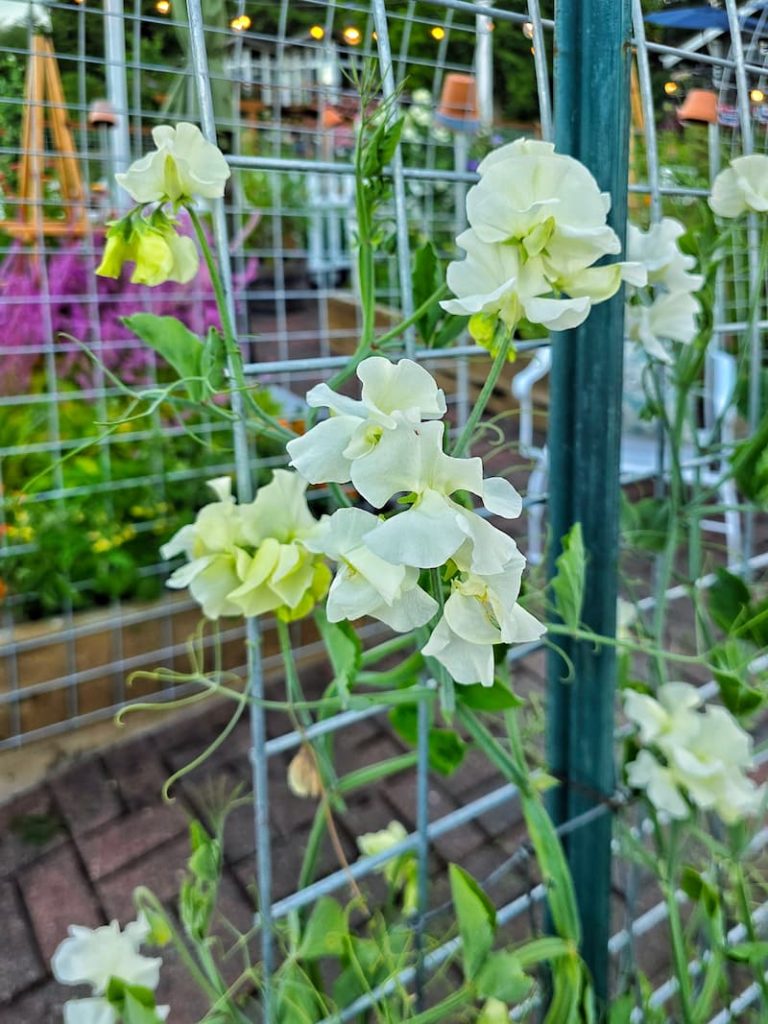
Why Won’t My Pea Seeds Germinate?
Several factors could be keeping your pea seeds from sprouting.
Soil Temperature
Peas are cool-season crops, which means they prefer cooler soil to begin their growth. Ideal soil temperatures for pea seed germination are between 45°F to 75°F (7°C to 24°C).
Seed Depth
Planting too deep can make it hard for the pea seedlings to break through the soil surface. Generally, pea seeds should be sown about 1 to 1.5 inches deep.
Watering Issues
Overwatering or underwatering can both be detrimental. Pea seeds need consistent moisture to germinate, but waterlogged soil can lead to rot.
Letting the soil dry out completely after planting can halt the germination process.
Seed Age and Quality
Older seeds or those stored under poor conditions may have a lower germination rate. Always check the expiration date on your seed packets, and store unused seeds in a cool, dry place.
Pests and Diseases
Soil pests, such as birds, mice, or insects, may feast on your seeds before they can sprout. Fungal diseases can also affect seeds, particularly in wet conditions.
Using quality seeds and practicing crop rotation can help minimize these issues.
What is the Best Fertilizer for Sweet Peas?
Choosing the best fertilizer for sweet peas is crucial for nurturing their growth and ensuring a high bloom production.
Sweet peas thrive with the right balance of nutrients, supporting their vigorous vine growth and the production of their fragrant flowers.
Understanding Sweet Pea Nutritional Needs
Sweet peas benefit from soil rich in organic matter, with a good supply of phosphorus and potassium to support strong root development and flowering.
However, they require less nitrogen than other nutrients because excess nitrogen can lead to more foliage growth at the expense of flowers.
The Best Fertilizer Options
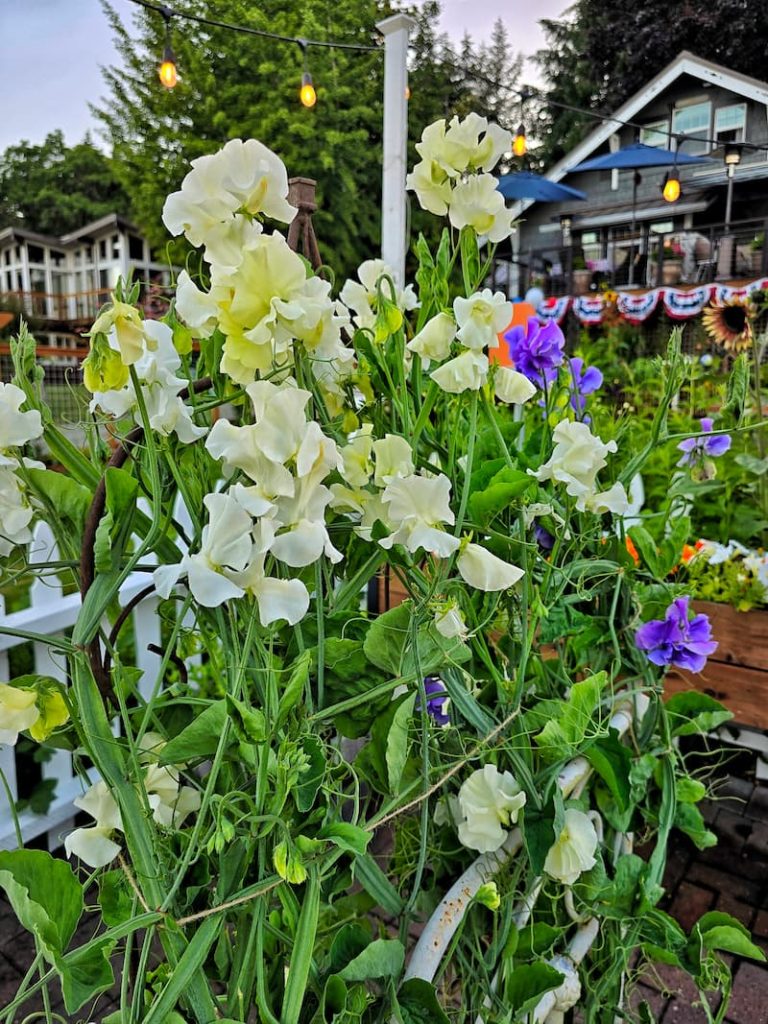
Why are my Sweet Peas Growing So Slowly?
Addressing some of these factors, you can help your sweet peas catch up and enjoy their lush foliage and beautiful, fragrant flowers. Here are some solutions to encourage growth:
What Helps Sweet Peas Grow?
Sweet peas add such a charming addition to your garden space. With these tips to grow sweet peas from seed, your outdoor spaces will be full of beautiful blooms before you know it.
If you have any questions or additional suggestions, please share them in the comments below. And be sure to share this blog post link with anyone who may find these gardening tips useful.
Until next time,
Happy Gardening!

I’m a self-taught hobby gardener. Everything I share on my blog is my opinion and what has worked for me.
Follow Me for More Inspiration
Shop my Amazon Storefront, LTK sources, and my favorite home decor, garden, and lifestyle products. When you purchase from one of my links, I earn a small commission, which helps me continue sharing all the content you expect on my blog.
Follow me on Pinterest, Instagram, Facebook, TikTok and LIKEtoKNOW.it. Do you like gardening? Join my Facebook Gardening Tips & Tricks group.

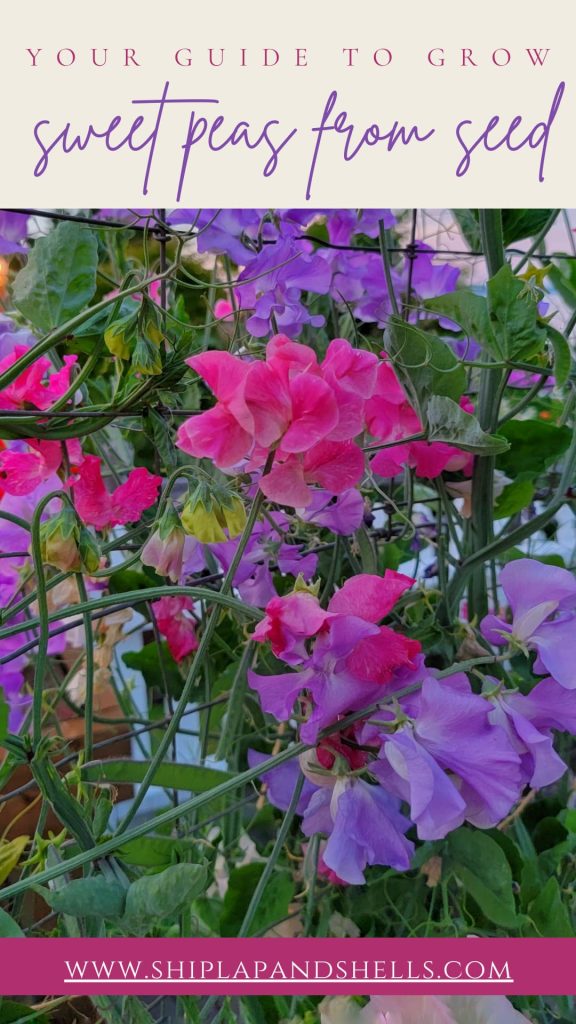


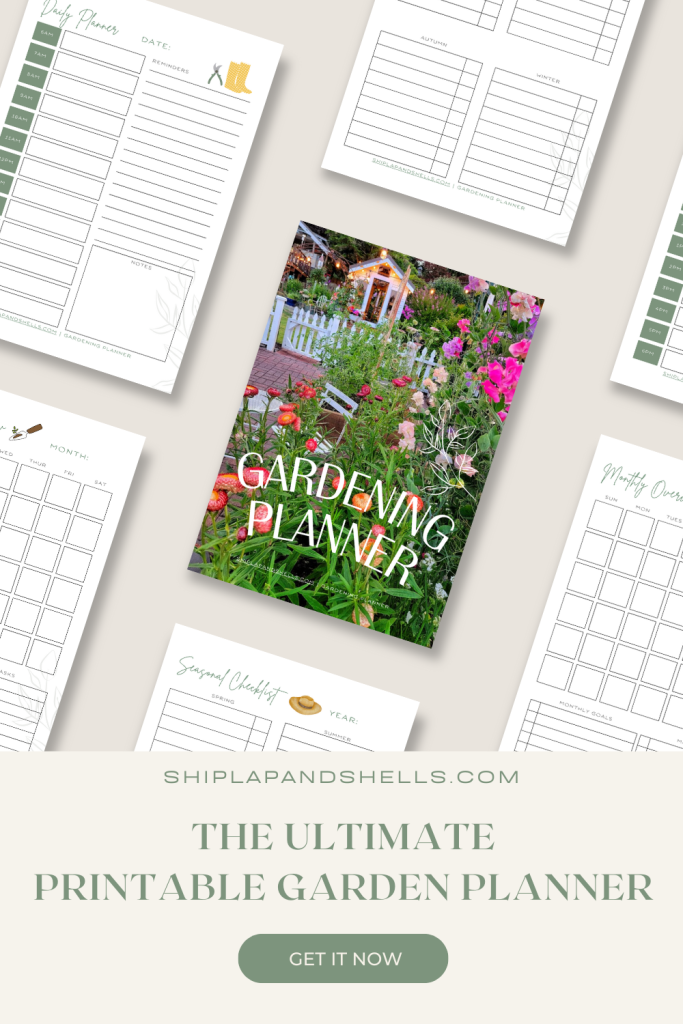
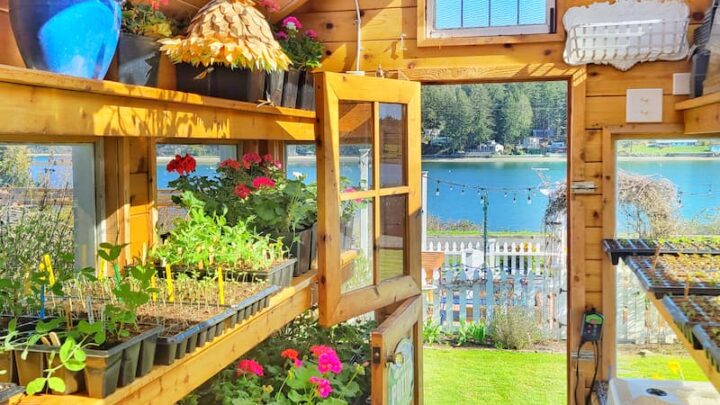
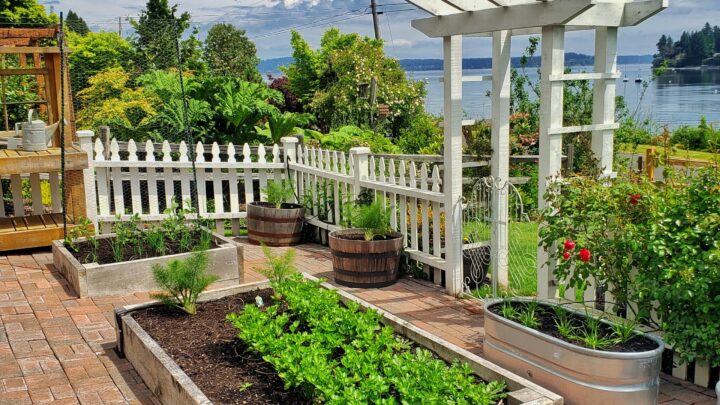
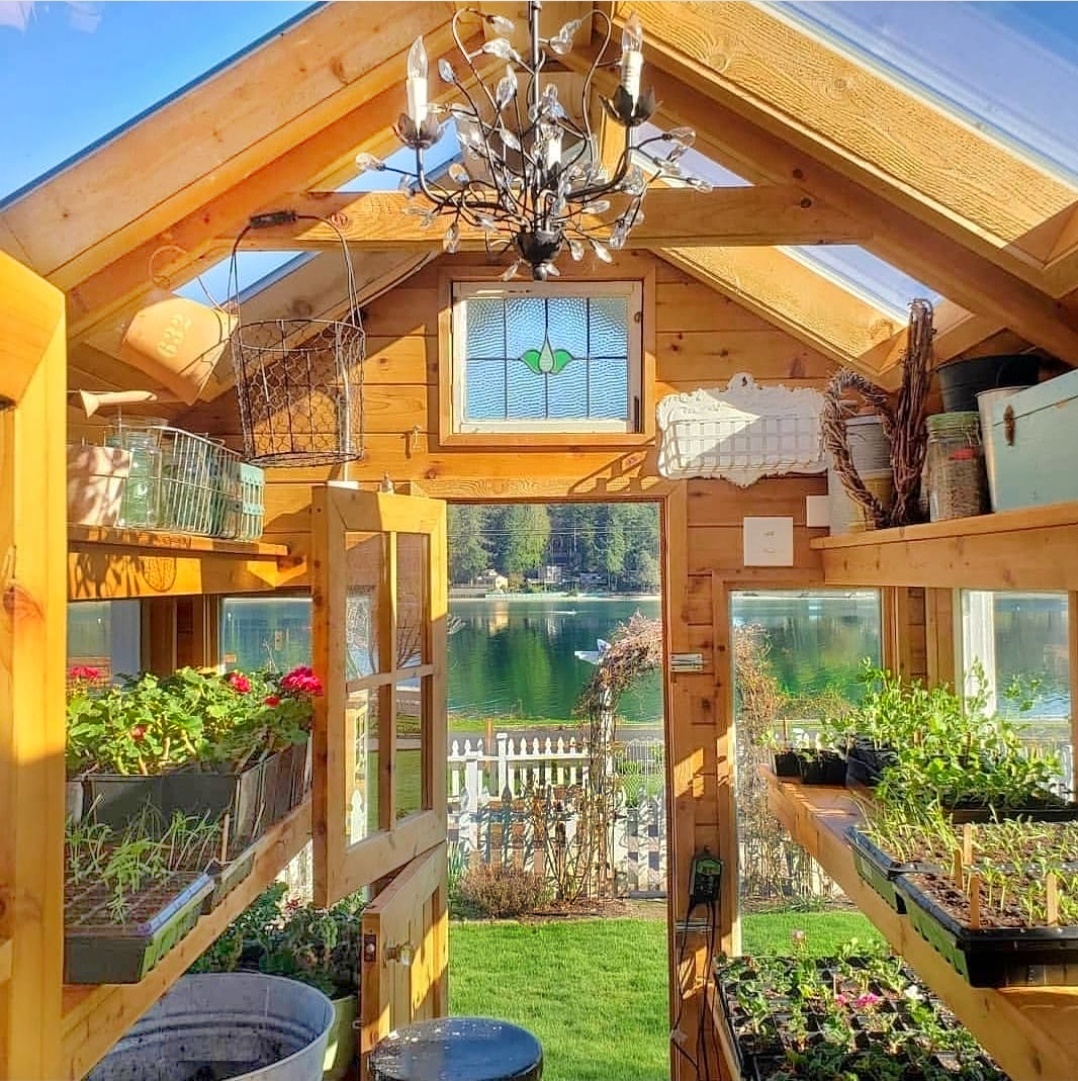
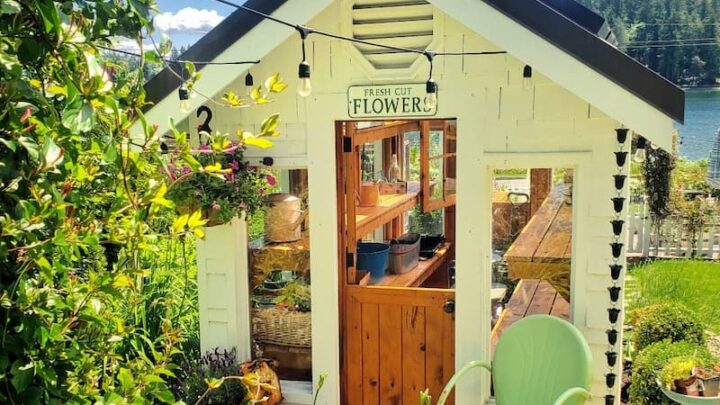
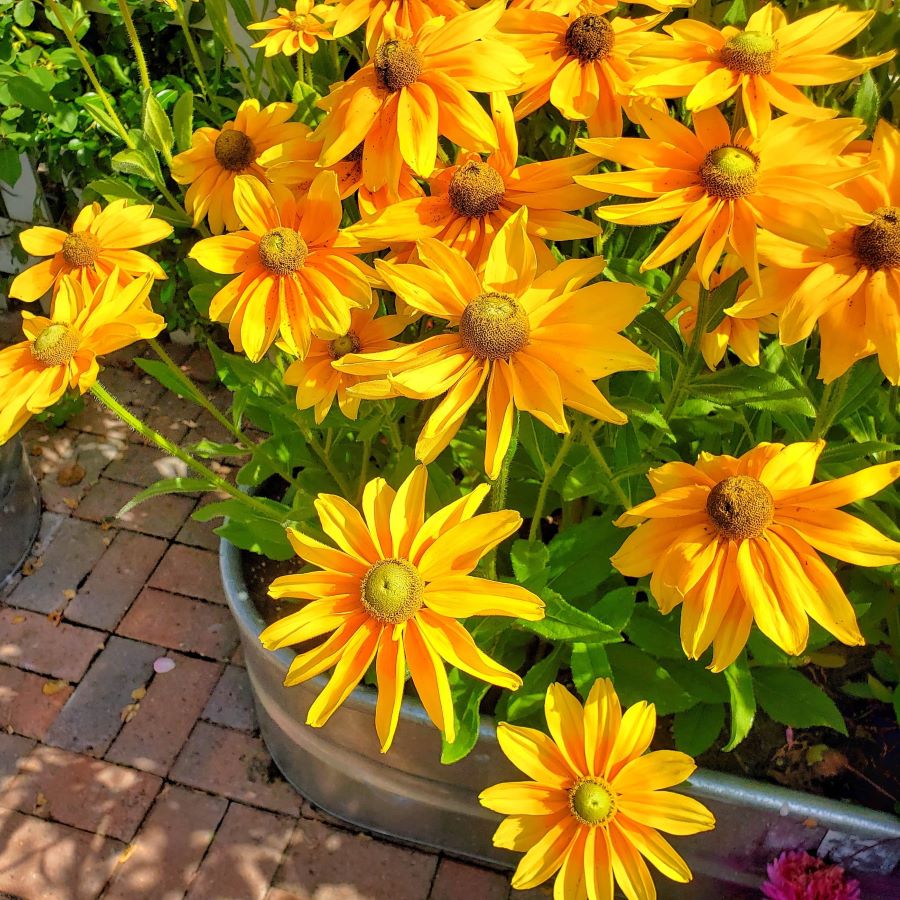
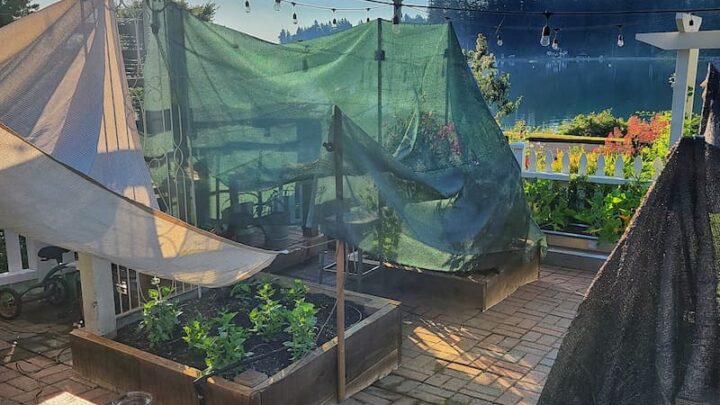
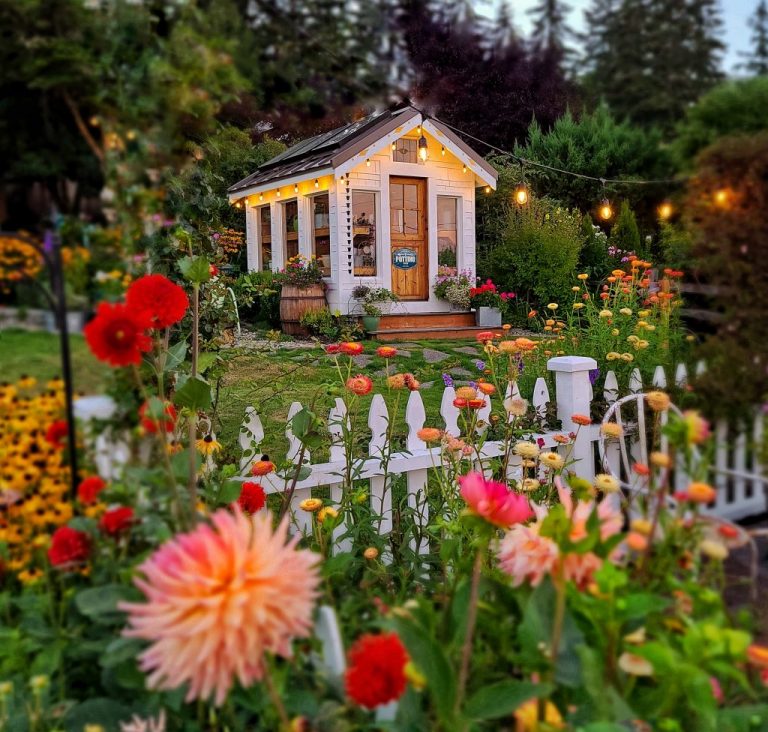
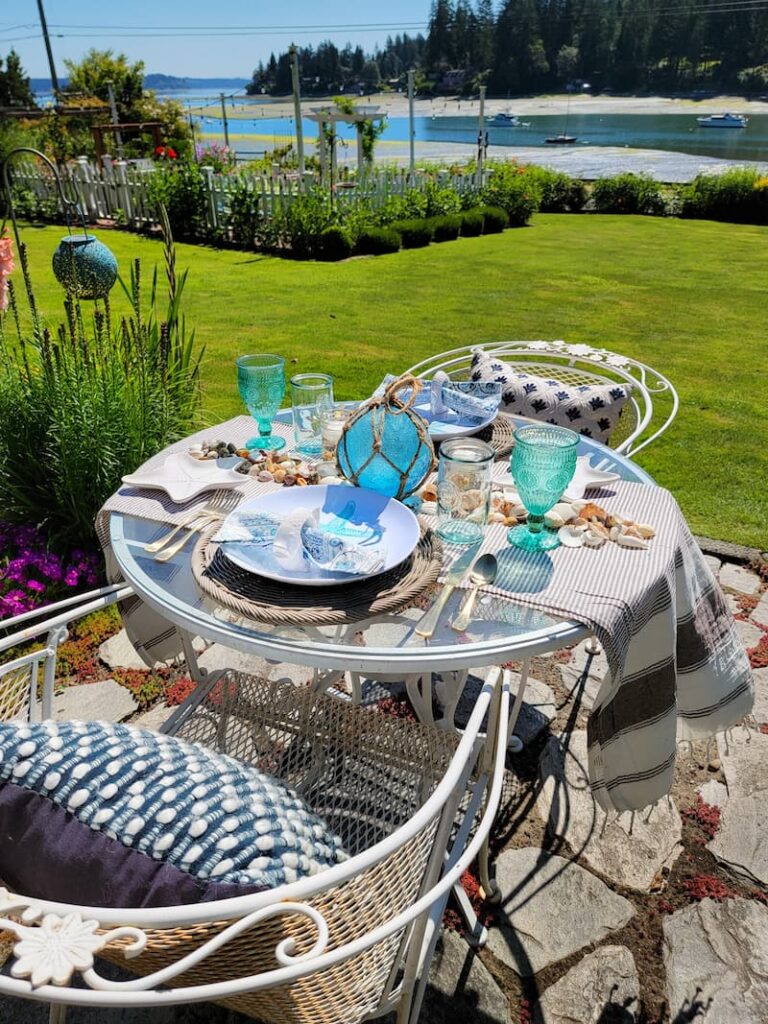
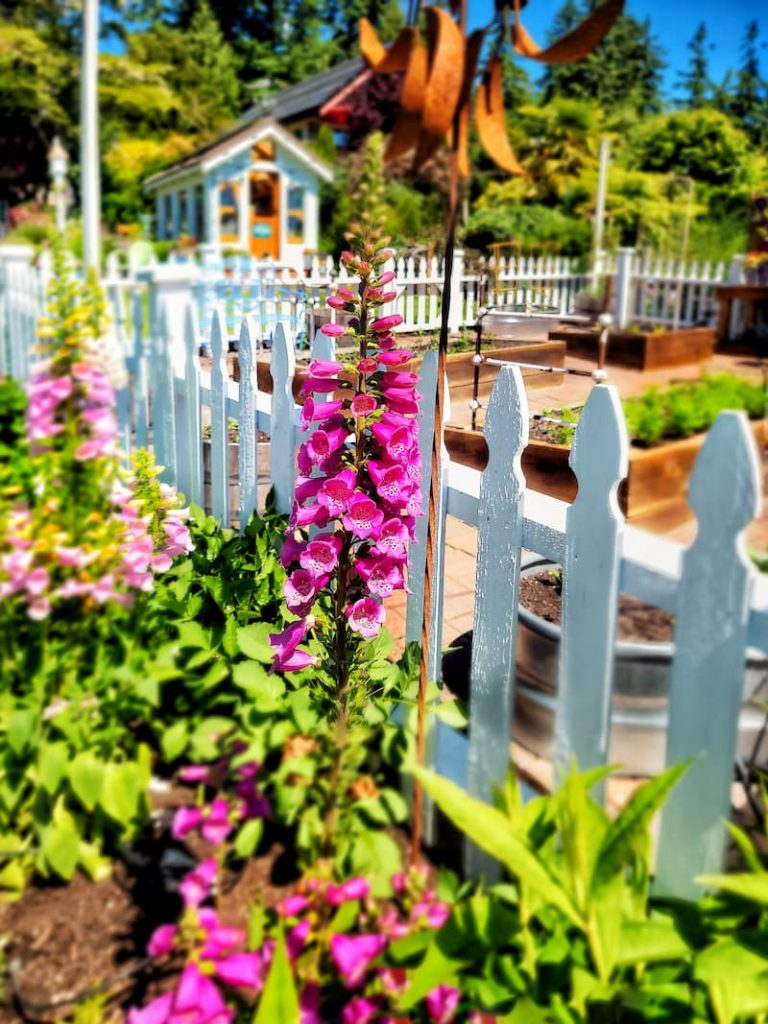
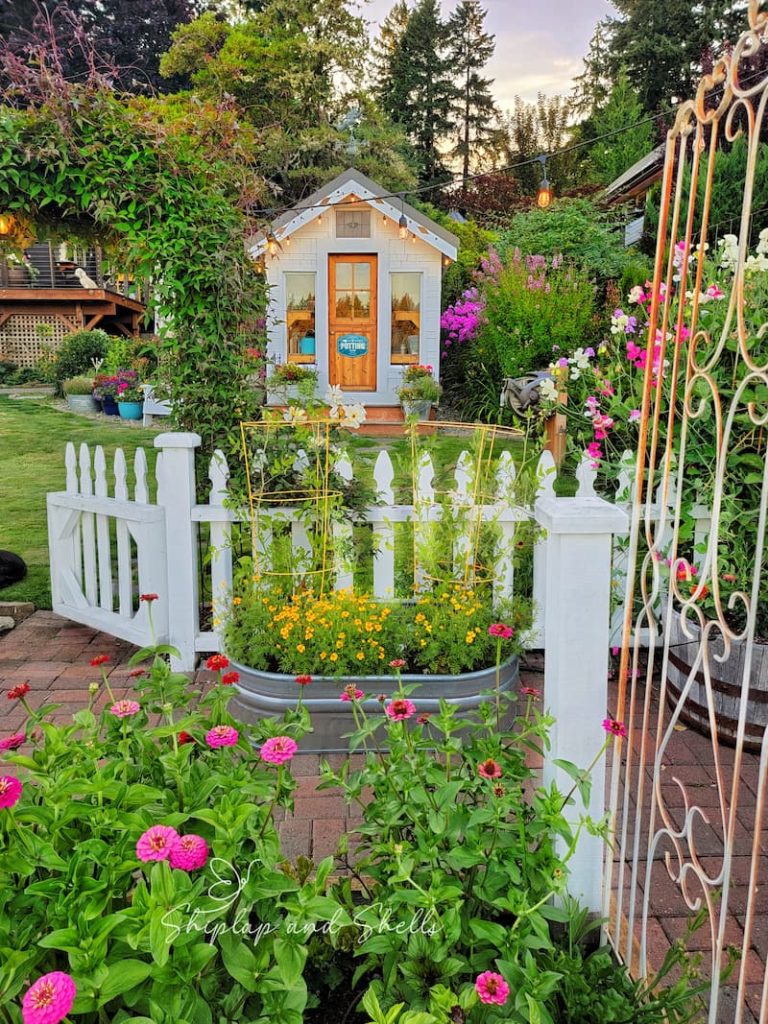
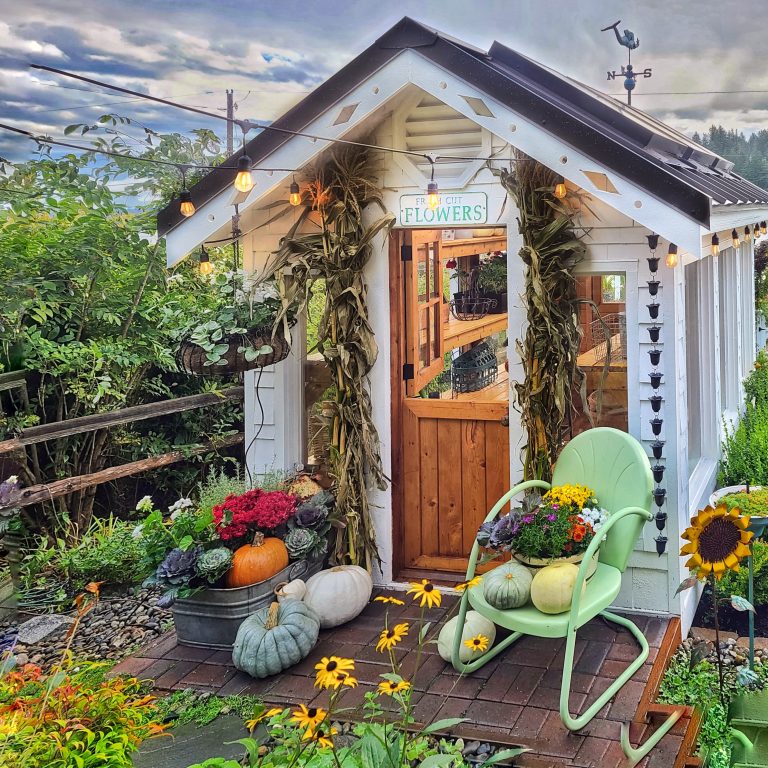
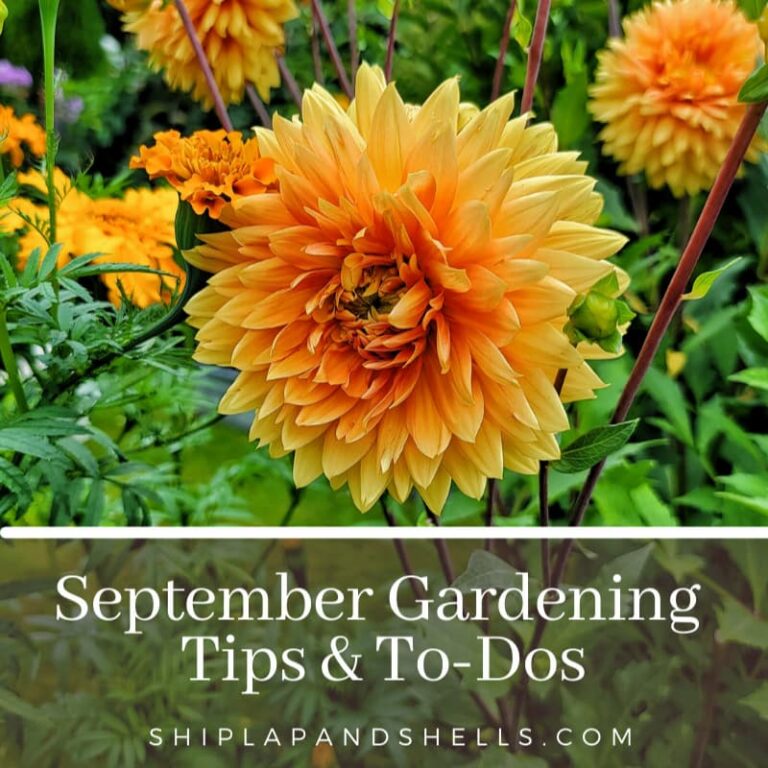
Thank you for sharing such a thoughtful and engaging article. Your perspective is refreshing and always inspires me.
I really appreciate you reaching out and so glad you enjoyed the post.
These sweet peas are so beautiful! I can’t believe they only live 4-5 days after they’ve been cut. They have such an old fashioned and heirloom feel to them though so I would definitely take a chance on them. I don’t think they grow here but I’m going to look them up. I’m all about container gardens. Big hugs and thank you for all the fabulous tips, CoCo
I love sweet peas so much. I would hope so since I grow four varieties every year. Thank you CoCo.
Your sweet peas always look so pretty!!!!! Love this!
Thank you Stacy.
Seeing pics of your beautiful garden always amazes me. You are so talented. I love sweet peas! My grandpa’s yard was covered in them. I will be growing sweet peas from seed this year and I can’t wait to see them in bloom
Thank you for the amazing compliment! Everyone I talk to about sweet peas has a great memory about this flower or had a family member who grew it when they were younger.
Hi just a question my neighbor had sweet peas and they migrated to my garden. They have been choking out my flowers and I can’t get rid of them. I think they would be fine somewhere, where there are no others flowers to compete with the garden space. Maybe I’m doing something wrong. They have deep creeping roots. What do you think?
Thanks for your question. I have always grown sweet peas in containers and have never grown them in the ground. Plus they are annuals where we live so they die off every year. But yes, they have really deep roots and I can see that happening. Hopefully, you have a nice neighbor who will look at growing these flowers in a container to help you out.
Kim
I love your attention to detail. I’m sharing this on Dirt Road Adventures this weekend. Thanks for all the tips.
Thank you so much Racel for sharing my link. I really appreciate it!
Please tell us about the raised garden beds ?
I will share about my raised beds this coming week in a FAQ blog post. Thank you for your interest!